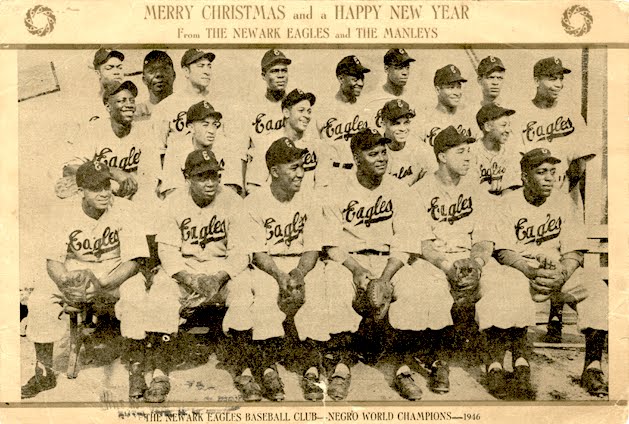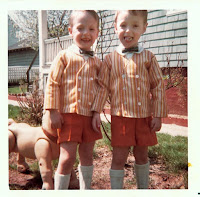CNO Adm. John Richardson recommends works that are the foundation of American Government in his "Canon" of professional reading. Chief among the recommendations is the United States Constitution, which military service members swear to defend.
The First Amendment to the Constitution in the Bill of Rights is a mere 45 words, focusing on key freedoms worth defending.
In "Madison's Music" (The New Press, 2015) author Burt Neuborne argues that the words are meant to be read as a poem that creates its own music. Far from that being an abstract exercise, however, Neuborne gives practical reasons and logical ways to find the music. He uses examples from James Madison's own writings and other founders' insights. And he presents historical and legal examples.
 |
| U.S. Navy participation in Normandy landing June 6, 1944 (Watercolor, Dwight C. Shepler, NHHC) |
Odysseus the Tailor's real name was Sam. A gentle, unassuming man who stood all of five five, my father was one of a dozen U.S. Navy frogmen dropped into the English Channel several hours before the Normandy invasion in 1944, with instructions to attach explosives to a wall of underwater steel spikes designed to tear the bottoms out of Allied landing craft. Once the explosives were in place, Pop and his buddies swam to the beach and crouched in the surf until the invasion boats neared the French coast. Then they blew a hole in the steel wall, opening a bloody path to the liberation of Europe. After D-Day, Pop was assigned to “Patton's Navy,” a small combat unit supporting amphibious crossings of French rivers during the Third Army's push toward Paris. From our kitchen in the Greenpoint section of Brooklyn, my mother and I anxiously plotted Odysseus's progress across Europe. My job was to keep Pop up-to-date on his beloved New York Giants. Each letter from me contained baseball box scores laboriously clipped from the Brooklyn Eagle. Pop's heavily censored replies promised a glorious future when we would see a baseball game together at the Polo Grounds.When Odysseus the Tailor finally came home in the summer of 1946, I oiled my baseball glove and waited for the great day. July passed into August – but no baseball. Pop reopened his tailor shop, and we sat comfortably in the warm sunlight while silver needles danced in his thimbled fingers – but no baseball. School began after Labor – but no baseball. Finally, in mid-September, I broke down at dinner. “What have I done,” I wailed, “that we can't go to a Giants game.” My father, who had forgotten his wartime promise, was stricken. He hugged me. “I love you, Butchie,” he whispered. “But we can't go to a Giants game yet ...They still don't let black people play, and we just don't support things like that.”Instead, we took the ferry across the Hudson River to see the world champion Newark Eagles play a Negro League game at Ruppert Stadium. I don't remember much about the game, other than the beautifully dressed, multiracial crowd, the noise, the sunlight, and the joy of being my father's son.– Farewell, Odysseus of the silver needles. This book is for you.In "Madison's Music" Neuborne expresses his reverence for the Bill of Rights: "No documents in the history of self-government prefigures such a carefully drawn, chronologically organized blueprint of democracy in action."
Looking at a blueprint for a house, we have to imagine not just the building but also the home to be brought to life. The "enduring text" of "Jefferson's lieutenant" Madison needs to be read as "a great poem about freedom and democracy," Neuborne says. "The unique beauty of great poetry is found in the text itself, in the imagery, emotions, and meaning produced by the order, cadence, structure and content of the words."
"Congress shall make no law respecting an establishment of religion, or prohibiting the free exercise thereof; or abridging the freedom of speech, or of the press; or the right of the people peaceably to assemble, and to petition the government for a redress of grievances."With understanding and mutual respect (and the wisdom to see the poetry and hear the music) "the apparent paradox resolves into structural harmony," Neuborne writes.
 This book is filled with enigmas and paradoxes. What's the case for military and prison chaplains but against prayer in public schools or legislatures? How can "fear and emotion erode the protections in the Constitution" in times of crises? How do gerrymandering, voter suppression and excessive money in politics threaten democracy? What's the true story behind "Marbury vs. Madison"? What did Putin do with the Russian Orthodox Church to ensure religion was an arm of his government? How is false speech (especially by people in power) corrosive to dignity, freedom and democracy?
This book is filled with enigmas and paradoxes. What's the case for military and prison chaplains but against prayer in public schools or legislatures? How can "fear and emotion erode the protections in the Constitution" in times of crises? How do gerrymandering, voter suppression and excessive money in politics threaten democracy? What's the true story behind "Marbury vs. Madison"? What did Putin do with the Russian Orthodox Church to ensure religion was an arm of his government? How is false speech (especially by people in power) corrosive to dignity, freedom and democracy?Mao and Pol Pot and Hitler and Stalin and ISIS "leaders" didn't hear the music or read the "poem" about freedoms of religion, speech, and the press, including the rights to assemble and petition the government. Authoritarian dictators abhor literary or artistic innovation and free expression.
"Would-be tyrants have always understood that control over speech about the full range of human experience – not just politics – is crucial to the maintenance of authoritarian rule," Neuborne writes.
 |
| Burt Neuborne |
"(Madison) knew that the habits of thought that enable free people to govern themselves justly and well – respect for others, skepticism about absolutes, toleration of disagreement, and openness to change – cannot thrive without a steady flow of unfiltered information, ideas, and opinions about art, philosophy, literature, science, technology, history, ethics, economics, psychology, sociology, sex, leisure, and business."Professor Neuborne credits the late Supreme Court Justice Antonin Scalia for inspiring and challenging him. He builds his argument on a "great literary poem" by Wallace Stevens called "The House Was Quiet and the World Was Calm" about the joy of reading.
 |
| Kurt Vonnegut |
"Our founding fathers never promised us that this would be a painless form of Government, that adhering to the Bill of Rights would invariably be delightful. Nor are Americans proud of avoiding pain at all costs. On patriotic holidays, in fact, we boast of how much pain Americans have stood in order to protect their freedoms – draped over barbed wire, drowning in water-filled shell holes, and so on." So it is not too much to ask of Americans that they not be censors, that they run the risk of being deeply wounded by ideas so that we may all be free. If we are wounded by an ugly idea, we must count it as part of the cost of freedom and, like American heroes in the days gone by, bravely carry on."Vonnegut was an Army veteran who, like Neuborne's Navy veteran father, Sam "Odysseus the Tailor," fought in Europe against Nazi Germany in the Second World War.









































